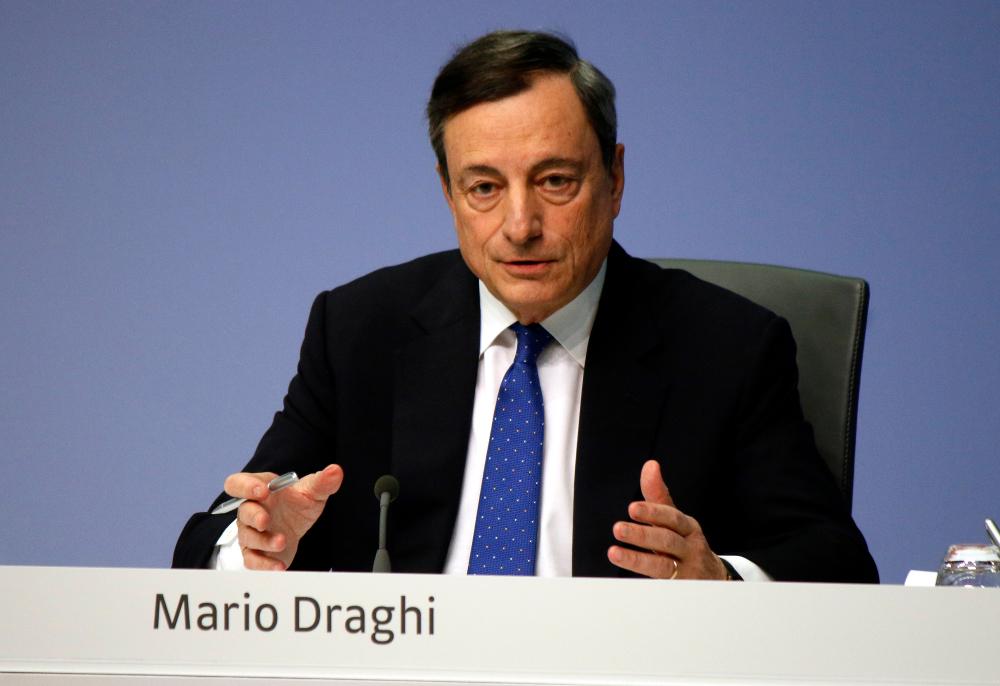The ‘goodbye kiss’ has been delivered! Quantitative easing was more modest – with lower-than-expected volumes of asset purchases – but the trajectory of interest rate cutting was continued today by incumbent ECB President Mario Draghi.
European Central Bank, acting quickly, Cuts Rates 10 Basis Points. They are trying, and succeeding, in depreciating the Euro against the VERY strong Dollar, hurting U.S. exports…. And the Fed sits, and sits, and sits. They get paid to borrow money, while we are paying interest!
— Donald J. Trump (@realDonaldTrump) September 12, 2019
The eurozone’s main interest rate has remained unchanged at 0%, but the deposit facility rate (paid by banks on reserves at the ECB), was dropped by 10bp to negative 0.5%. Regarding its first QE package since 2016, the ECB committed to buying €20 billion of debt per month – lower than the €30 billion commitment that was expected – which will commence from November 1st.
Draghi: The European economy is a bank-based economy and we want to protect the transmission of our monetary policy through the lending channel. That’s the philosophy of the measures we took today.
— European Central Bank (@ecb) September 12, 2019
Mr Draghi said the interest rate shift would remain “at their present lower levels” until eurozone inflation rates reached their target of 2%. The asset purchase programme announced today was more hawkish than expected, and perhaps geared towards giving incoming president Christine Lagarde additional flexibility. The ECB’s QE programme will, “run for as long as necessary”.
Reasons given for the nature of today’s package involved an attempt to counter the “protracted slowdown” in the eurozone economy, which is “more marked than expected”. Further, it is intended to counteract the “persistence of downside risks”, of a trade and geopolitical nature – Brexit, for instance. Finally, because of the recent downward revision in projected inflation levels, and the muted nature of inflation at present.
Ranko Berich, Monex Europe head of market analysis, commented on the ECB programme,
“At first glance, the ECB has not quite thrown the kitchen sink at the eurozone economy,”
“The QE package is shy of market expectations, which were €30bn a month. But the Bank is clearly back in the business of serious policy easing and more aggressive action could easily be taken in response to a worsening in conditions.”
Draghi: There was no appetite to discuss limits, because we have the headroom to go on for quite some time without raising the discussion about limits
— European Central Bank (@ecb) September 12, 2019
Alongside a No-Deal Brexit, the Joint Committee of the three European Supervisory Authorities warned that a prolonged low-interest environment represented a risk to the financial stability of the EU bloc.
The Committee’s report today, read,
“While the monetary policy response to weakening growth and inflation outlook has helped restore the confidence in the financial markets in the short term, over the medium term persistently low interest rates, combined with flattening yield curves, put pressure on the profitability and returns of financial institutions, incentivise search-for-yield strategies and increase valuation risks,”
A couple of related, concluding questions about helicopter money, ‘giving money directly to citizens’ and ‘should central banks step in’ to do a job governments aren’t doing (one of the questions was inspired by a paper co-authored by Draghi’s thesis advisor) were palmed off by by Mr Draghi, who stated,
“This is a fiscal matter, not monetary policy”.
Though some will interpret this as an admission that the measures implemented by the ECB are insufficient.
Elsewhere in large financial player and macro economic news, there have been updates from; Lloyds Banking Group PLC (LON: LLOY), Jo Johnson quitting, Hilary Benn’s Brexit delay bill, Parliament being prorogued, Barclays (LON: BARC) and Deutsche Bank (ETR: DBK).

